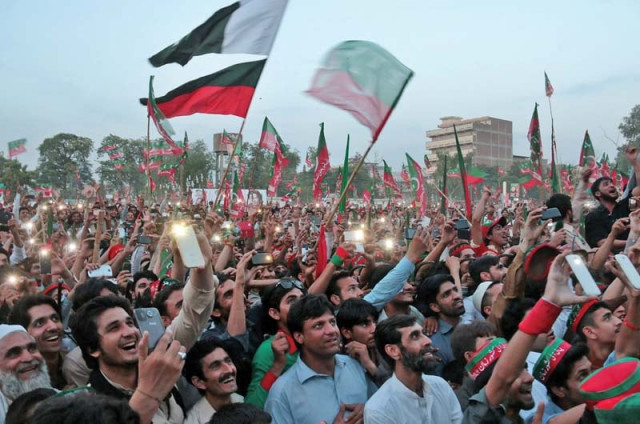PTI politicos leading the line in Swat
Tripartite alliance ineffective, JI hiding behind coalition partner’s shadow

The district comprises 214 village and neighbourhood councils. So far fortune has favoured 148 general councillors, 202 women councillors, 11 labour/peasant councillors, 15 youth and 17 non-Muslim councillors. PHOTO: MUHAMMAD IQBAL/EXPRESS
Drawing a line under a rather pockmarked history of democracy in the valley, Swat’s 1,048,512 registered voters are ready to elect administrative representatives in hopes of uplifting the terror-marred district.
The district comprises 214 village and neighbourhood councils. So far fortune has favoured 148 general councillors, 202 women councillors, 11 labour/peasant councillors, 15 youth and 17 non-Muslim councillors who have been elected unopposed in various villages and neighbourhoods.
Although a high number of hopefuls filed nomination papers for different offices, ironically not a single candidate is contesting 195 seats for non-Muslims, 138 for women, two for labour/peasant and two for youth while 11 general seats are also vacant.
Swat’s religious minorities mostly reside in Mingora and Khwazakhela – the reason why a large number of minorities seats in different areas are vacant.
On the tehsil, district level
There are seven tehsil councils; as many as 327 and 338 candidates are contesting the party-based district and tehsil council seats, respectively.
Swat election commission in charge Abdul Qadir said 709 polling stations, including 223 for women, will be set up across Swat. He said officials are being trained and all the necessary equipment has been acquired. As many as 4,554 candidates are in the run for the district’s 1,284 berths at both the party and non-party basis. On average around three contestants are fighting for each councillor seat of Swat.
Dark horse
In a rather riveting arrival on the scene, Pakistan Tehreek-e-Insaf swept the 2013 general elections and secured both the National Assembly seats and six out of Swat’s seven berths in the provincial legislature. Now with state apparatus in its hands, the PTI is in position to repeat the performance in the LG polls. Jamaat-e-Islami has agreed upon a seat-by-seat adjustment with its coalition partner in the provincial government.
However, local leaders from both parties have fallen out and revolted against the alliance in various union councils. A lack of substantial development work conducted by the PTI-JI administration in Swat, ever since they came into power, might take its toll on poll results.
Smelling blood
In the opposition camp, the tripartite alliance of Awami National Party, Pakistan Peoples Party and Jamiat Ulema-e-Islam-Fazl is busy piecing together a substantial front to counter the influence of PTI. There was a time when the PPP was a dominating force in the region, however, with the passage of time it has lost considerable ground and today its hopes rest on the shoulders of its two allies.
The unnatural coalition of ideological polar opposites has not gone down well with the grass-root activists and sympathisers who are reluctant to allow their new allies any space. Although in principle the alliance is all over the place in Swat, in PTI the three parties have found a common enemy.
On the flipside, Aftab Ahmad Khan Sherpao’s Qaumi Watan Party and Mahmood Achakzai’s Pakhtunkhwa Milli Awami Party also have a footprint in the valley and have pitted candidates in different areas. Pakistan Muslim League-Nawaz is also eying a couple of berths. JUI-F and PkMAP have formed an alliance in Kabal tehsil while ANP is counting on JUI-F to shoulder support in the valley’s toughest battleground – Mingora.
Most of the candidates are either former LG officer-bearers or former lawmakers. PTI is the only party that has taken a chance with relatively new entrants in Swat’s political arena.
Also, unlike the 2013 general elections, the recent incidents of target killing have somewhat hampered the entire electioneering process. Candidates, especially those aligned with nationalist, progressive and democratic parties, remain confined to their homes instead of campaigning openly.
On guard
Swat DPO Salim Marwat said out of its 709 zones, 115 have been declared sensitive and 74 most sensitive. He said 7,000 police officials will patrol the roads of the district as voters cast their ballots.
Checkpoints have also been set up across all major roads. Marwat added security has also been provided to important leaders and hopefuls from all political parties.
Published in The Express Tribune, May 29th, 2015.













COMMENTS
Comments are moderated and generally will be posted if they are on-topic and not abusive.
For more information, please see our Comments FAQ